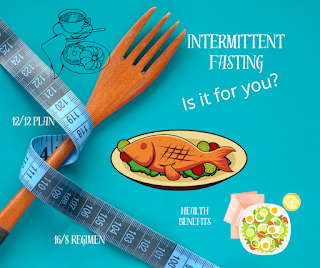Bloating is a common issue that many people experience, often accompanied by discomfort, tightness, or an overall feeling of fullness in the abdomen. While occasional bloating is generally harmless, frequent episodes may indicate an imbalance in your gastrointestinal (GI) system. A well-functioning GI system is essential not only for digestion but also for nutrient absorption, immune function, and overall health. This article explores five scientifically-backed habits to help prevent bloating and promote optimal digestive health.
1. Balance Your Fiber Intake
Fiber is critical for digestion, but too much or too little can lead to bloating. Fiber comes in two forms: soluble and insoluble. Soluble fiber, found in oats, beans, and fruits, absorbs water and forms a gel-like substance, slowing digestion and promoting satiety. Insoluble fiber, found in whole grains, nuts, and vegetables, adds bulk to stool and helps food pass through the digestive tract more efficiently.
Practical Tips:
- Introduce Fiber Gradually: Rapid increases in fiber intake can cause gas and bloating. Slowly incorporate more high-fiber foods over several weeks to allow your digestive system to adjust.
- Drink Plenty of Water: Fiber works best when paired with adequate hydration. Without enough water, fiber can harden and lead to constipation, worsening bloating.
- Balance Both Types of Fiber: Aim for a mix of soluble and insoluble fiber in your diet. For example, combine oatmeal with a handful of berries or include a side of leafy greens with your whole-grain pasta.
2. Identify and Manage Food Intolerances
Certain foods can trigger bloating in individuals with specific intolerances, such as lactose (found in dairy) or gluten (found in wheat, barley, and rye). These intolerances occur when the body lacks the enzymes needed to break down these substances, leading to gas production and bloating.
Practical Tips:
- Keep a Food Diary: Track what you eat and note any symptoms to identify patterns and potential triggers.
- Consider Elimination Diets: Temporarily remove suspected foods from your diet and then reintroduce them one at a time to confirm their impact on your symptoms.
- Seek Professional Testing: Consult a healthcare provider for diagnostic tests, such as hydrogen breath tests for lactose intolerance or blood tests for celiac disease.
3. Adopt a Proactive Approach to Meal Habits
The way you eat can significantly impact digestion. Eating too quickly, skipping meals, or consuming large portions can overwhelm your digestive system, leading to gas and bloating.
Practical Tips:
- Eat Slowly and Chew Thoroughly: Chewing breaks food into smaller pieces, making it easier for your stomach to process and reducing the amount of air swallowed during meals.
- Avoid Overeating: Stick to portion sizes that satisfy hunger without overloading your stomach. Eating smaller, more frequent meals may work better for some individuals.
- Establish a Consistent Eating Schedule: Irregular meal times can disrupt digestion and exacerbate bloating. Aim to eat meals at the same time each day.
4. Prioritize Gut-Friendly Foods
A healthy gut microbiome—the collection of microorganisms in your digestive tract—plays a crucial role in digestion and overall health. Imbalances in gut bacteria can lead to increased gas production and bloating.
Practical Tips:
- Incorporate Probiotics: Foods like yogurt, kefir, sauerkraut, and kimchi contain live bacteria that support a healthy gut. Consider probiotic supplements if dietary sources are insufficient.
- Fuel with Prebiotics: Prebiotics, found in foods like garlic, onions, bananas, and asparagus, feed beneficial gut bacteria and promote their growth.
- Limit Artificial Sweeteners: Sugar alcohols like sorbitol and xylitol, often found in sugar-free products, can ferment in the gut and cause bloating.
5. Stay Active and Manage Stress
Physical activity and stress management are often overlooked but play vital roles in digestive health. Exercise stimulates the muscles in your GI tract, promoting regular bowel movements, while chronic stress can disrupt digestion and worsen bloating.
Practical Tips:
- Engage in Regular Exercise: Aim for at least 150 minutes of moderate-intensity activity per week. Low-impact options like walking, yoga, and swimming are particularly beneficial for digestion.
- Practice Relaxation Techniques: Activities like deep breathing, meditation, or progressive muscle relaxation can reduce stress and its negative effects on the GI system.
- Prioritize Quality Sleep: Poor sleep can alter gut bacteria and impair digestion. Aim for 7-9 hours of uninterrupted sleep per night.
- Stay Hydrated: Adequate hydration supports digestion by softening stool and aiding in the movement of food through the intestines. Drink water consistently throughout the day, especially with high-fiber meals.
- Limit Carbonated Beverages: Fizzy drinks can introduce excess air into your digestive tract, leading to bloating.
- Be Mindful of Medications: Certain medications, such as nonsteroidal anti-inflammatory drugs (NSAIDs), can irritate the GI tract. Discuss alternatives with your doctor if these contribute to bloating.
✋✋✋
Preventing bloating and maintaining a healthy GI system requires a multifaceted approach that combines dietary changes, mindful eating habits, and lifestyle modifications. By balancing fiber intake, identifying food intolerances, eating thoughtfully, supporting gut health, and staying active, you can reduce the likelihood of bloating and promote better digestive health. Remember, persistent or severe symptoms may indicate an underlying condition and warrant consultation with a healthcare professional.








